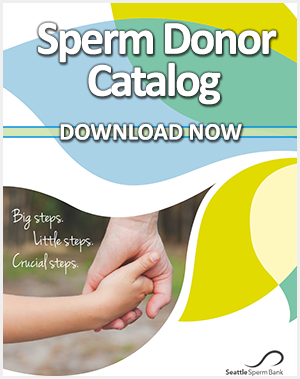When you’re trying to get pregnant, even minor lifestyle adjustments can have positive effects. Plus, unlike genetics, these are things largely within your control. Following the tips below may increase your fertility and your chances of conception. Be sure to discuss these ideas with your doctor or midwife to create a plan specific to you, your body type, and your ovulation cycle.
Watch Your Caffeine
Like most lifestyle choices, moderation is key. And that includes caffeine, which many people use regularly. Your morning cup of joe (or two) is fine. But if you’re sipping on lattes all afternoon or guzzling sodas daily you should begin cutting back immediately. Studies have shown that consuming more than 500 milligrams of caffeine daily may decrease fertility while increasing the risk of miscarriage. However, no links have been found between low amounts of caffeine (about 200 milligrams or less daily) and infertility so abstinence is not absolutely necessary.
Maintain Ideal Body Weight
Numerous studies indicate that being overweight or underweight negatively affects your ovulation cycle, making it harder to get pregnant. Talk with your doctor about your ideal weight for your body type so you can make changes to your diet or exercise routine as necessary.
Get Regular Exercise
Getting at least 30 minutes of exercise three or more times per week helps keep you healthier in general, but there’s also ample evidence it improves your fertility. Exercise is also a great way to work off stress. Research – and perhaps your own experience – has shown that infertility causes high levels of anxiety and depression, so that’s all the more reason to be active. But don’t overdo it. Regular strenuous exercise has actually been linked to lower fertility in women.
Know Your Menstrual Cycle
A normal menstrual cycle is usually between 21 and 35 days. If yours is longer than that you are ovulating less often. But ovulation varies among women, so it’s important to know when your fertility window is. That window is the five days prior to ovulation through the day of ovulation itself. This is the only time it’s possible for you to get pregnant so knowing this window is critical. There are several ways to determine your ovulation cycle:
- Around the time of ovulation, the mucus of your vagina will be clear and slick signaling the best time to attempt conception.
- Use an over-the-counter ovulation kit to help determine the time of the month when you’re most likely to conceive.
- Record and chart your basal body temperature using a special basal thermometer, which can be found at most drug stores. Your basal body temperature rises after ovulation so this is an accurate way of knowing exactly when ovulation occurs. Mark that day of the month and then be sure to attempt conception on that day the following month.
- Track your menstrual cycle to determine when you’re most fertile. The length of the cycle varies among women so it’s important to know your own. Day one is the first day of your menstrual period and the last day is the final day before the next period cycle begins. Your most fertile days are the three days leading up to and including ovulation.
Don’t Smoke
No surprise here given that smoking is bad for you is so many ways. But there is plenty of medical evidence linking cigarette smoking with decreased fertility. Smoking deteriorates your eggs, prematurely ages your ovaries, and increases your chances of a miscarriage. So if you’re trying to get pregnant and also smoking, then quitting the habit immediately is in your best interest in the short and long term.
Eat Healthy Foods
To optimize your fertility, follow these guidelines for healthy eating:
- Get at least six servings of fruits and veggies every day. If that’s difficult to do, you can mix things up by eating fruit smoothies or making juices. But raw fruits and vegetables can’t be beat since they contain plenty of necessary fiber, so be sure to consume them raw as much as possible.
- Folic acid is important for everyone, but especially for pregnant women and those trying to conceive. Rich sources of folic acid include spinach, beans, brown rice, lentils, oats, broccoli, citrus fruits, and whole grains.
- Consider taking multivitamins. Specifically, look for pills with at least 40 milligrams of iron and 400 milligrams of folic acid.
- Eat whole grains such as whole wheat bread, brown rice, and oatmeal and eliminate white bread, bagels, and white rice from your diet.
- Other foods shown to increase fertility include salmon, blueberries, tomatoes, kale, and Greek yogurt.
Manage Stress
This may be the toughest one. Notice we didn’t say “avoid stress” because that’s virtually impossible for anyone, especially women trying to conceive, which can be stressful itself. But it is important to be aware of the causes and triggers of stress so you can better manage it since high stress has been linked to irregular menstrual cycles, which only makes conception more difficult.
Fortunately, there are things you can do including regular meditation or prayer, taking an exercise class, listening to music, getting out in nature, spending time with friends, or anything else that makes you feel calmer and more relaxed. (You can begin right now with a few deep breaths.) You may also want to consider talking with a professional therapist if you are having difficulty coping with infertility issues.
Though there are no guarantees, maintaining a healthy lifestyle may increase your fertility, giving you the highest possible chance to conceive.
If you have specific questions about ways to increase fertility, please call our clinic at (206) 588-1484.


